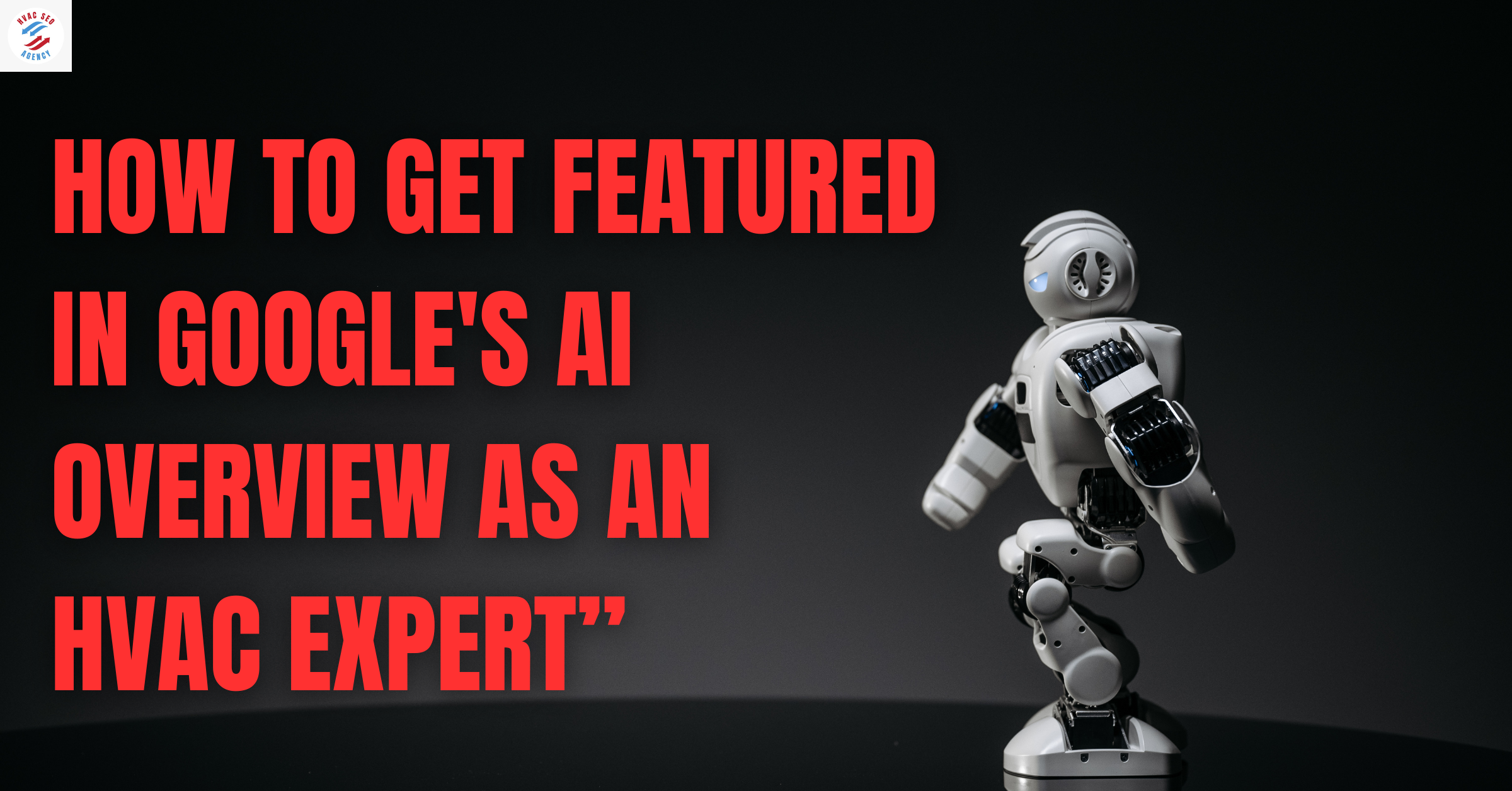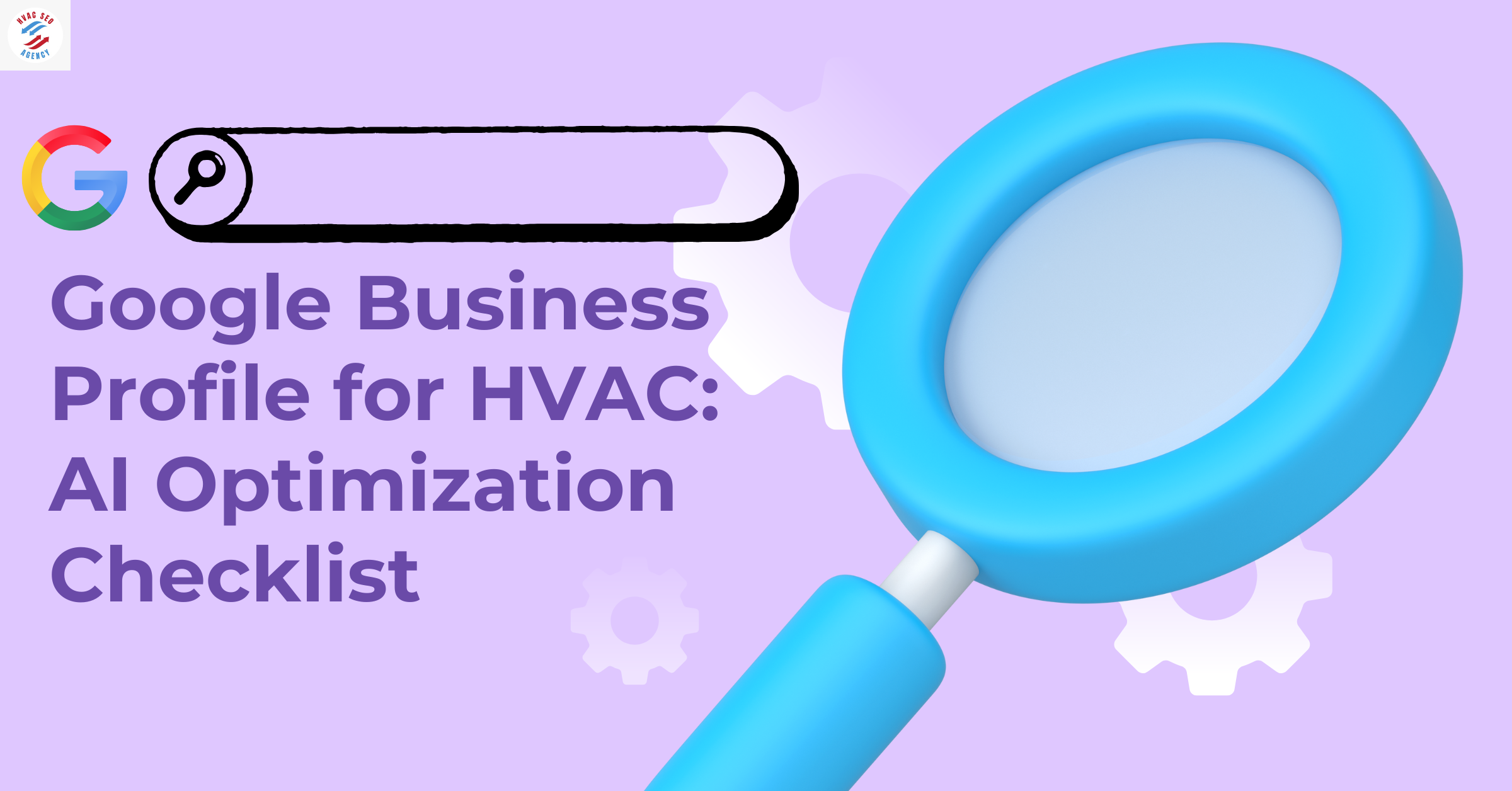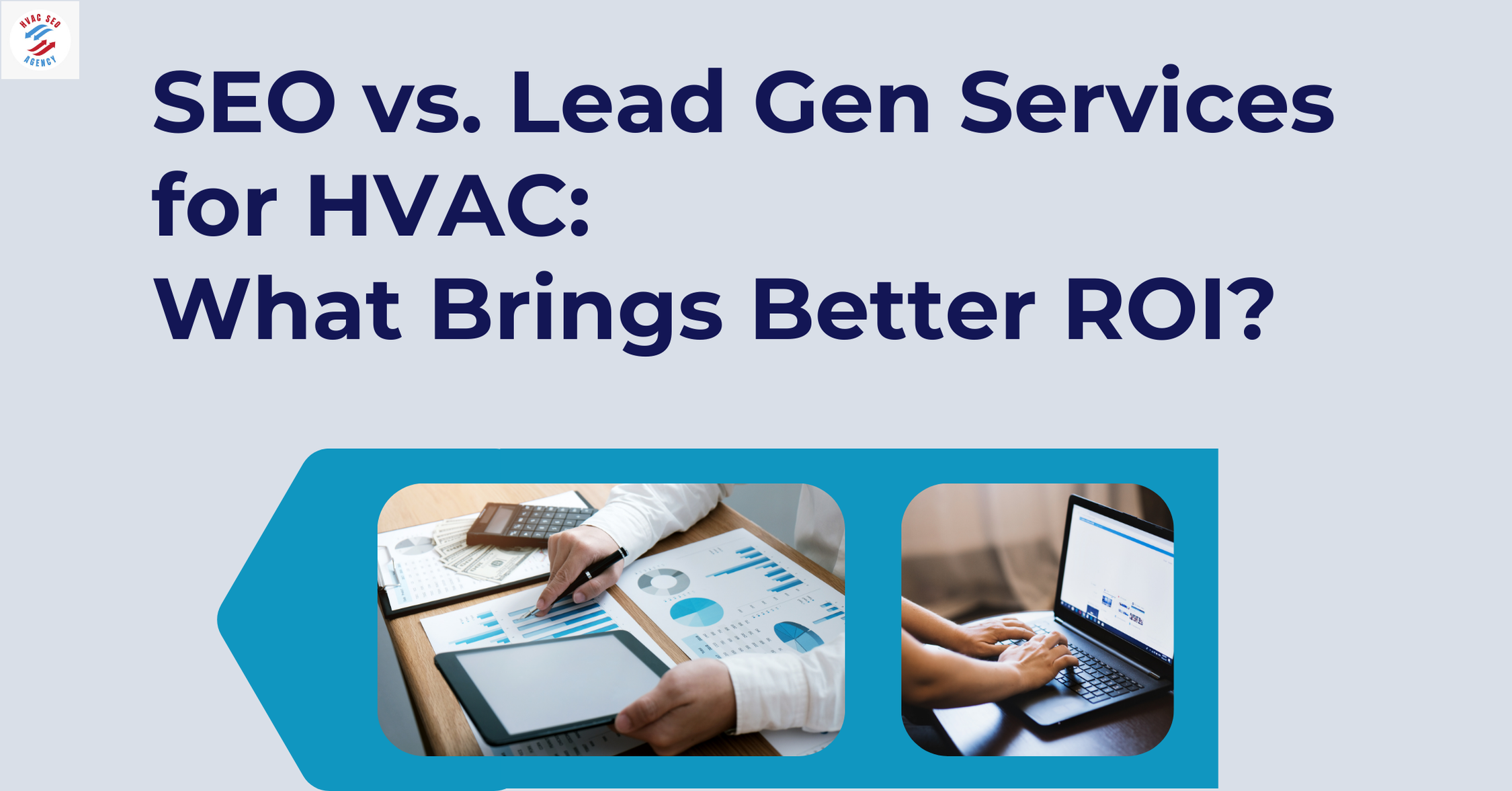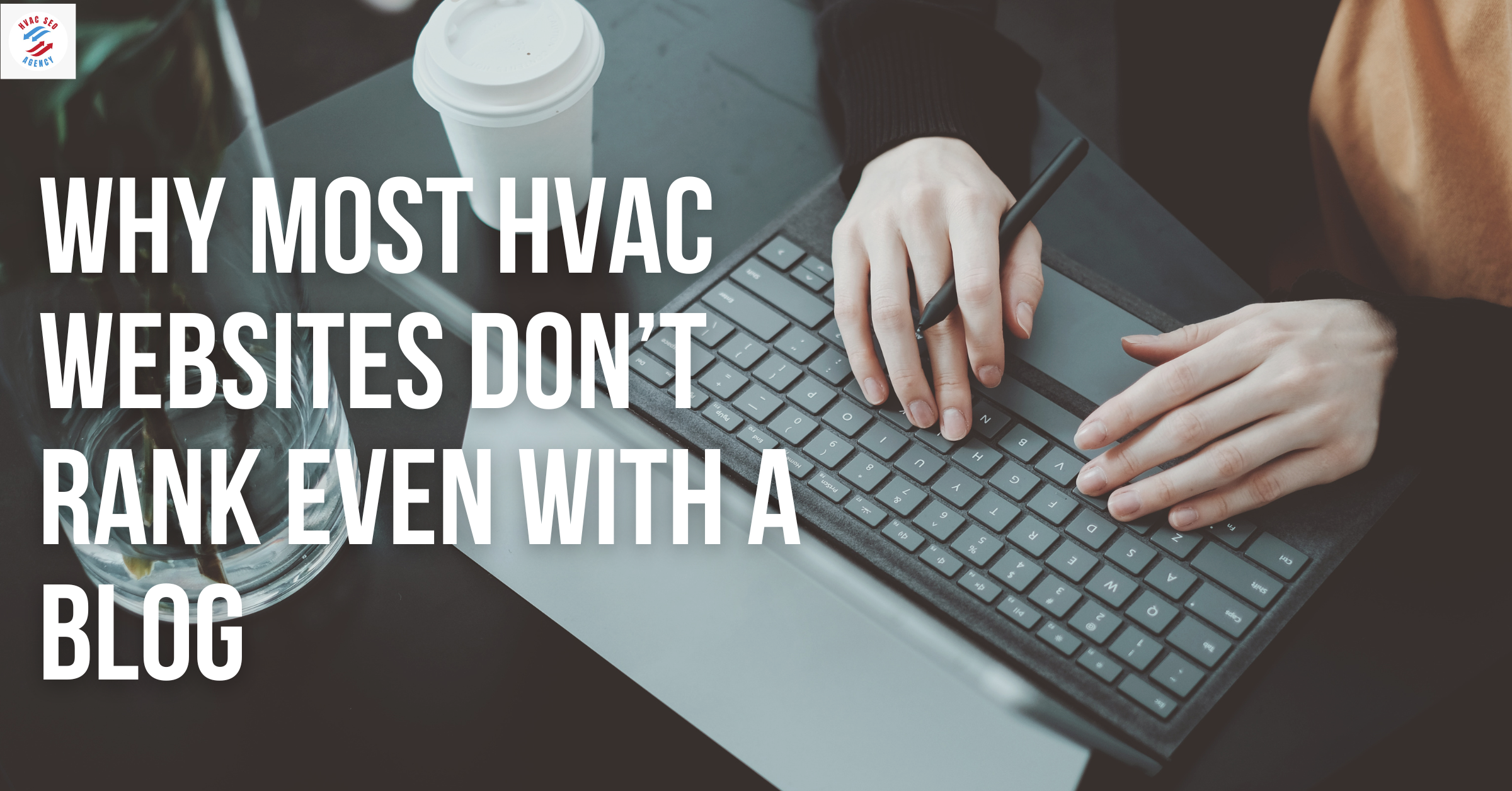How to Expand Your HVAC Business into New Cities

The HVAC industry is growing rapidly, and business owners are looking for profitable ways to expand HVAC business areas beyond their current locations. Whether you own a well-established HVAC company or are looking to scale your operations, entering a new city can unlock massive revenue potential. However, expansion is not as simple as setting up a new office or hiring more technicians; it requires strategic planning, market research, legal compliance, and effective marketing strategies to succeed.
Expanding your HVAC services into new cities requires an in-depth understanding of local market trends, customer demand, and competition. Many HVAC companies struggle with brand visibility when entering a new service area, which is why a strong digital presence is essential. Partnering with an HVAC SEO Agency can significantly improve online discoverability, ensuring that your business ranks at the top of Google search results when potential customers look for heating, cooling, and air conditioning services in your target city.
Additionally, understanding state-wise HVAC licensing requirements, local permit laws, and operational costs will help streamline the expansion process and avoid compliance issues. Developing a localized marketing strategy, using targeted SEO, PPC ads, and customer reviews, will help position your HVAC business as a trusted provider in new locations. With the right planning, execution, and SEO-driven marketing from an HVAC SEO Agency, you can successfully scale your HVAC business into multiple cities while increasing revenue and customer base.
Why Expanding Your HVAC Business is a Smart Move
According to market reports, the global HVAC market is expected to grow to $367.5 billion by 2030, driven by rising demand for energy-efficient systems, urbanization, and extreme weather conditions. In the U.S. alone, the HVAC sector is experiencing consistent annual growth of 6-7%, creating huge opportunities for companies looking to enter new markets with HVAC services. With the increasing adoption of smart HVAC technology, including IoT-enabled systems and AI-driven climate control solutions, businesses that expand strategically can tap into a growing customer base that prioritizes sustainability and energy efficiency.
Additionally, factors such as government rebates for energy-efficient HVAC installations, increasing construction of commercial and residential properties, and rising awareness of indoor air quality are fueling industry expansion. The demand for HVAC maintenance contracts and emergency repair services is also rising, providing HVAC companies with recurring revenue opportunities. Expanding into new cities allows businesses to diversify their market presence, reducing dependence on a single location while building brand authority in multiple regions.
However, entering a new market requires more than just expanding service locations; it involves targeted digital marketing strategies, optimized local SEO, and strong online visibility to attract customers. Working with an HVAC SEO Agency can give businesses a competitive advantage by helping them rank higher in Google search results, ensuring they are the first choice for homeowners and businesses looking for HVAC services in new locations. By leveraging data-driven marketing, customer reviews, and localized service pages, HVAC businesses can successfully expand their footprint, increase revenue, and build a loyal customer base across multiple cities.
If done correctly, HVAC business expansion ideas can lead to:
Increased revenue through new customers
Stronger brand presence in multiple locations
Higher customer retention with expanded service coverage
Diversification of income to reduce business risks
HVAC Industry Growth Projection
Illustrate the projected growth of the global HVAC market from 2024 to 2029. For instance, the market is expected to grow from $281.7 billion in 2024 to $389.9 billion by 2029, reflecting a Compound Annual Growth Rate (CAGR) of 6.7%.
The Challenges of Expanding an HVAC Business
While expansion brings exciting growth opportunities, it also comes with unique challenges:
Finding the right market – Not all cities offer the same demand for HVAC services.
High operational costs – Expansion requires significant investment in staffing, equipment, and marketing.
Regulatory compliance – Licensing and permit requirements vary by city and state.
Competitive pressure – Established HVAC businesses in new cities may dominate the market.
What This Guide Will Cover
This comprehensive guide will walk you through everything you need to know about how to expand HVAC business areas, from choosing the right city to setting up local operations, legal requirements, digital marketing strategies, and financial planning. By the end, you'll have a clear roadmap to successfully grow your HVAC business into new cities while minimizing risks and maximizing profits.
Is Expanding Your HVAC Business the Right Move?
The HVAC industry is growing at an unprecedented rate, and many HVAC business owners are considering whether they should expand HVAC business areas into new cities. However, expansion is not just about setting up shop in a different location; it requires strategic planning, financial stability, and deep market understanding to ensure success in a competitive market.
According to industry research, the HVAC market is expected to grow to $367.5 billion by 2030, presenting massive opportunities for companies looking to enter new markets with HVAC services. However, before making the leap, HVAC business owners need to evaluate key factors such as customer demand, competition density, and operational capacity. Expanding into a new city requires careful market research to identify areas with high service demand but low competition, ensuring that your business can establish itself as a trusted provider in the area.
Additionally, securing the right business licenses, understanding local zoning regulations, and investing in digital marketing are crucial steps in a successful expansion. Many HVAC businesses struggle with gaining visibility in new cities, which is why working with an HVAC SEO Agency can significantly improve Google rankings, lead generation, and brand awareness. By optimizing local SEO strategies, leveraging PPC advertising, and generating positive customer reviews, businesses can maximize their growth potential while avoiding common pitfalls associated with expansion. With the right approach, expanding into new markets can lead to sustainable revenue growth, increased customer base, and long-term industry dominance.
U.S. HVAC Market Size and Growth Rate
Display the U.S. HVAC systems market size, which was estimated at $30.41 billion in 2023, with a projected CAGR of 7.4% from 2024 to 2030.
Key Indicators That It's Time to Expand Your HVAC Business
Pro Tip: Do a Market Test Before Full Expansion Rather than immediately opening a new physical location, consider offering services in the target city on a trial basis. This allows you to assess demand before committing to a long-term investment.
By analyzing your customer inquiries, competitor landscape, and local demand, you can determine whether expanding into a new city is the right move. If these factors align, it's time to explore HVAC business expansion ideas and take your brand to the next level.
Choosing the Best City for HVAC Expansion
Not all cities offer the same potential for HVAC business expansion ideas. Choosing the wrong market can lead to low customer demand, high competition, and regulatory hurdles that make expansion unprofitable. That’s why selecting the right city is crucial for success. A well-researched market can provide high revenue opportunities, steady customer demand, and a competitive advantage, allowing your HVAC business to scale effectively.
Before expanding, it's important to analyze population growth, climate conditions, and construction trends in potential cities. Cities with extreme weather conditions, rising real estate developments, and growing commercial infrastructure often have higher demand for HVAC installation, repair, and maintenance services. Additionally, reviewing Google search volume and online trends for HVAC-related keywords in different locations can help gauge the level of demand in a particular city.
Working with an Affordable HVAC SEO Agency can significantly enhance your digital presence in new markets by helping your business rank higher on Google, attract local customers, and improve online visibility. SEO strategies such as optimized local landing pages, Google Business Profile management, and targeted keyword campaigns can give your HVAC business a competitive advantage when entering a new city. By partnering with an Affordable HVAC SEO Agency, you can ensure that your HVAC services stand out in high-demand areas, driving more leads and increasing revenue while keeping marketing costs low.
Another critical factor is competition density. Expanding into an oversaturated market with established HVAC businesses can make it difficult to secure new customers. Instead, targeting underserved areas with fewer service providers can give your business a better foothold and stronger brand presence. Working with an HVAC SEO Agency can also help boost visibility in new cities by optimizing local search rankings, Google Business Profile listings, and digital marketing campaigns. By selecting the right city and leveraging smart SEO and marketing strategies, your HVAC business can successfully enter new markets, increase lead generation, and drive sustainable growth.
Factors Influencing City Selection for HVAC Expansion
Break down key factors such as population growth, climate conditions, construction trends, and competition density, each contributing to the decision-making process for selecting new markets.
Top Factors to Consider When Selecting a City for Expansion
Best U.S. Cities for HVAC Business Expansion in 2025
Google Search Volume Analysis
Use Google Trends and keyword research tools to check demand for HVAC repair, air conditioning installation, and heating services in the target city.
Look for high search volume and low competition for better ranking potential.
Local Economic & Construction Growth
Cities with rising real estate development and commercial growth are ideal HVAC markets.
Check local government reports on housing and infrastructure projects.
Competitor Analysis
Use Google Maps and business directories to analyze existing HVAC providers in the area.
Look at customer reviews to identify service gaps that your business can fill.
Final Takeaway: Choose a City with High Demand & Low Competition
A strategic expansion means targeting growing cities with strong demand, rising construction, and limited HVAC service providers. This approach ensures a profitable and sustainable HVAC business expansion.
Legal & Licensing Requirements for Expanding HVAC Business
Expanding HVAC business areas into new cities requires careful legal planning and compliance with state and local regulations. Many HVAC companies overlook licensing, permits, and insurance, leading to costly legal issues and delays in operations. To enter new markets with HVAC services smoothly, it's crucial to follow the correct legal procedures.
Key Legal Requirements for HVAC Business Expansion
HVAC Licensing Requirements by State
Pro Tip: Always check local regulations in your target city. Some areas may have stricter building codes and zoning laws for HVAC businesses.
Steps to ObtaWhat are the rules and regulations or protocols for making the blog slug for google ranking according to google algo. Based on that, make the slug for this blog. Also, make sure that it must be SEO optimized.in an HVAC License in a New City
Verify State & Local Licensing Requirements – Each state has unique regulations. Visit the state contractor board website for updated information.
Complete Required Training & Certification – Some states require HVAC technicians to complete apprenticeships or certification exams.
Apply for Business Registration & Permits – Obtain a Tax ID (EIN), insurance, and any city-specific permits before launching operations.
Ensure EPA Compliance – If your business handles refrigerants, you must have EPA Section 608 Certification.
Stay Updated on Renewals – Some states require annual license renewals with continuing education credits.
Expanding into a new city without proper legal preparation can lead to fines, shutdowns, or even lawsuits. A licensed and compliant business builds trust and ensures smooth operations in new HVAC markets.
Setting Up Operations in a New City
Once you have obtained the necessary licenses and permits, the next step in HVAC business expansion is setting up a fully operational business in the new location. This includes finding a business location, hiring staff, managing supply chains, and streamlining operations.
Choosing the Right Business Model for Expansion
Before setting up operations, HVAC companies must decide on an expansion model:
Location Selection: Where Should You Open Your HVAC Office?
Expanding HVAC business areas means hiring trained and certified HVAC technicians, administrative staff, and customer service representatives.
Workforce Hiring Checklist
HVAC Technicians – Must have proper certifications (EPA 608, state license, OSHA training)
Office Staff – Administrative team for scheduling, invoicing, and customer support.
Sales & Marketing Team – Helps generate leads and build brand awareness.
Fleet & Dispatch Team – Manages HVAC service vehicles and technician routes.
Hiring Tip: Partner with local trade schools or HVAC training centers to recruit skilled technicians.
Supply Chain & Equipment Management
Expanding HVAC business areas requires a steady supply of HVAC units, parts, and tools. Setting up reliable vendor partnerships is crucial.
Where to Source HVAC Equipment?
Pro Tip: Negotiate bulk discounts with suppliers to lower equipment costs and increase profit margins.
Next Steps After Setting Up Operations
Finalize Business Location – Secure office space or set up mobile HVAC operations.
Hire & Train Staff – Ensure all technicians are certified and ready to serve.
Stock Up on HVAC Supplies – Maintain inventory for common repairs and installations.
Set Up Customer Booking System – Use a CRM tool for scheduling service calls.
Once your operations are in place, the next step is marketing your HVAC business to attract customers in the new city.
Digital Marketing Strategies to Enter New Markets
Expanding HVAC business areas into new cities requires more than just setting up operations; it demands a strong digital marketing strategy to attract new customers and establish brand credibility. Without targeted online marketing, your HVAC business may struggle to compete against well-established local providers that already have a loyal customer base. Leveraging effective digital marketing techniques is crucial to prepare your HVAC business for a successful expansion and ensure steady lead generation.
In today’s digital world, over 85% of homeowners search online before booking HVAC services, making local SEO, Google Ads, and social media marketing critical for HVAC business expansion ideas. A well-optimized Google Business Profile helps potential customers find your HVAC services quickly, while Google Ads and PPC campaigns allow businesses to target high-intent customers in specific geographic areas. Additionally, social media marketing on platforms like Facebook and Instagram helps engage with local audiences, showcase services, and build brand trust.
To prepare your HVAC business for a new market, it's essential to develop a localized digital marketing strategy that includes city-specific service pages, customer testimonials, and targeted content marketing. Investing in an Affordable HVAC SEO Agency can help boost search engine rankings, optimize keyword strategies, and improve online visibility in new locations. By implementing a data-driven marketing plan, HVAC businesses can expand successfully, generate more leads, and establish a dominant presence in new cities.
Digital Marketing Channels Impact on Lead Generation
Compare the effectiveness of various digital marketing strategies such as Local SEO, Google Ads, and social media marketing in generating leads for HVAC businesses.
Local SEO Optimization for HVAC Business Expansion
A well-optimized online presence ensures that your business ranks in Google’s Local Pack (the top three HVAC listings in a city), making it easier for potential customers to find and contact you. Local SEO to Get More HVAC Service is essential for generating leads, improving brand visibility, and increasing customer inquiries. Without a strong local SEO strategy, HVAC businesses risk losing customers to competitors who appear higher in search results.
To improve local SEO to get more HVAC service, businesses must focus on optimizing their Google Business Profile, ensuring NAP (Name, Address, Phone) consistency, and generating positive customer reviews. Additionally, creating city-specific service pages, using localized keywords, and acquiring local backlinks from relevant business directories can significantly improve search rankings.
A well-structured local SEO strategy also includes schema markup, geotagged images, and localized content marketing, helping Google understand your business's relevance in a specific area. Partnering with an Affordable HVAC SEO Agency can further enhance local search visibility, ensuring that your HVAC business attracts more customers in new service areas. By implementing these SEO-driven tactics, HVAC companies can successfully expand into new markets, drive higher organic traffic, and maintain a steady stream of HVAC service requests.
Steps to Dominate Local SEO for HVAC Services
Create City-Specific Landing Pages – Example: “HVAC Services in Phoenix, AZ”
Optimize Google Business Profile (GBP) – Include local phone numbers, address, and service areas
Build Local Citations & Backlinks – List your business on directories like Angi, HomeAdvisor, Yelp, and Thumbtack
Get More Google Reviews – Businesses with 4.5+ star ratings get 70% more clicks
Google Ads & Facebook Marketing for Immediate Leads
SEO takes time, but Google Ads & Facebook Ads deliver instant customer inquiries in new markets.
HVAC Advertising Strategy for Maximum ROI
Pro Tip: Use Geo-Targeting in Google Ads to target only high-demand areas, reducing wasted ad spend.
Retargeting: Convert Lost Visitors into Paying HVAC Customers
80% of website visitors don’t book services on their first visit. Retargeting ads remind them about your business, increasing conversion rates by 60%.
Set up Facebook Pixel & Google Remarketing Ads
Target users who visited your pricing or contact page
Offer seasonal discounts to increase HVAC bookings
Next Steps After Digital Marketing Setup
Monitor Ad Performance in Google Analytics
Adjust Keywords & Budget Based on Conversions
Optimize City-Specific Landing Pages for Higher Ranking
Final Thought: A strong digital marketing plan ensures a steady flow of leads and customers, allowing HVAC businesses to enter new markets with HVAC services successfully.
Common Challenges & How to Overcome Them
Expanding HVAC business areas into new cities presents unique challenges that can disrupt operations and slow down growth. Identifying potential roadblocks and developing effective solutions is key to a successful HVAC business expansion strategy. Many HVAC companies face obstacles such as high competition, low brand awareness, operational inefficiencies, and difficulties in acquiring new customers. Without a proper plan in place, expansion efforts can lead to financial losses and wasted resources.
One major challenge is establishing a strong online presence in a new city, especially when competing against long-established local HVAC providers. This is where the Ultimate Guide to HVAC SEO becomes essential. By implementing a strong local SEO strategy, optimizing Google Business Profile listings, and investing in PPC advertising, HVAC businesses can quickly gain visibility and attract new customers.
Another key challenge is managing multiple locations efficiently, which requires investing in HVAC business management software to streamline scheduling, invoicing, and customer communication. Additionally, securing proper licensing, understanding city-specific regulations, and developing a local network of suppliers and contractors can help smooth the transition. By leveraging targeted digital marketing, operational efficiency tools, and SEO-driven strategies, HVAC companies can overcome these challenges and successfully expand into new cities.
Challenge 1: Finding Customers in a New Market
Problem: A newly expanded HVAC business lacks brand recognition in a new city, making it difficult to gain customer trust and visibility.
Solution: Build credibility fast through:
Google Reviews & Testimonials – Offer discounts for first-time customers in exchange for honest reviews.
Partnerships with Local Realtors & Property Managers – Many real estate agents refer HVAC companies to new homeowners.
Exclusive Introductory Offers – “$50 Off First HVAC Tune-Up” can attract early customers.
Pro Tip: Engage in local Facebook Groups and Nextdoor Ads to target homeowners searching for HVAC services.
Challenge 2: Managing Multi-Location HVAC Operations
Problem: Expanding into new cities means handling multiple service requests, scheduling, and inventory tracking efficiently.
Solution: Invest in HVAC Business Management Software
Pro Tip: A cloud-based CRM reduces operational errors by 40% and increases customer retention.
Challenge 3: Competitive Pricing Strategy in a New City
Problem: Entering a new HVAC market means competing with established providers who already have customer loyalty.
HVAC Pricing Model Based on Market Trends
Pro Tip: Use Google’s “People Also Ask” section to find common pricing questions customers search for and optimize your service pages with these queries.
Next Steps: Finalizing Your Expansion Plan
Once you have tackled common expansion challenges, the final step is to build a long-term growth strategy for your HVAC business.
Set Key Performance Indicators (KPIs) to track expansion success
Monitor Revenue Growth & Lead Generation in New City
Continue Investing in Digital Marketing & SEO for Long-Term Success
Expanding HVAC business areas can be challenging, but with the right strategies, tools, and digital marketing, you can successfully enter new markets with HVAC services and dominate the competition.
Common Challenges in HVAC Business Expansion
List common challenges like regulatory hurdles, high competition, and operational inefficiencies, along with their prevalence or impact level.
Real Case Studies of Successful HVAC Expansion
One of the best ways to learn how to expand HVAC business areas is by looking at real-world case studies of companies that successfully entered new markets. These examples will highlight strategies, challenges, and key takeaways to help you make informed decisions about your HVAC business expansion ideas.
Case Study 1: How ABC HVAC Expanded from 1 to 5 Cities in 3 Years
Company Overview
Business Name: ABC HVAC Services
Initial Location: Denver, CO
Expansion Cities: Phoenix, AZ | Austin, TX | Orlando, FL | Charlotte, NC | Nashville, TN
Growth Timeline: 2019 – 2022
Expansion Strategy & Key Tactics
Step 1: Conducted Market Research
Used Google Trends & keyword data to find high-demand HVAC areas.
Choose cities with low HVAC competition but high service demand.
Step 2: Focused on Local SEO & Digital Ads
Created city-specific HVAC service pages optimized for “HVAC repair in [city]” keywords.
Invested $3,000/month in Google Ads & Local Service Ads for fast visibility.
Step 3: Partnered with Local Contractors
Hired certified local HVAC technicians to speed up operations.
Used a franchise-like model to expand quickly.
Step 4: Built a Strong Customer Referral Program
Offering $50 off first HVAC service to attract new clients.
Launched a customer referral discount to build loyalty.
Business Growth Results
Revenue Before Expansion (2019): $750,000/year
Revenue After Expansion (2022): $3.2 million/year
Customer Base Growth: 400% increase
Google Review Ratings: Maintained 4.8-star average across all cities
Case Study 2: Why XYZ HVAC Failed in Expansion & What Went Wrong
Company Overview
Business Name: XYZ Heating & Cooling
Initial Location: Dallas, TX
Expansion Cities: Houston, TX | San Antonio, TX
Failure Timeline: 2020 – 2021
Mistakes Made During Expansion
Mistake 1: Entered an Oversaturated Market
Did not analyze competitor density before choosing Houston & San Antonio.
Struggled against well-established local HVAC companies.
Mistake 2: Underestimated Licensing & Legal Fees
Faced unexpected city-specific HVAC permit costs.
Mistake 3: Poor Digital Marketing Strategy
Relied solely on word-of-mouth marketing, with no Local SEO or PPC Ads.
Competitors outranked them in Google Search due to better online presence.
Mistake 4: Expanded Too Fast Without Enough Capital
Opened two new locations within 6 months, leading to cash flow issues.
Couldn’t afford enough Google Ads or promotional discounts to attract customers.
Business Failure Results
Revenue Before Expansion (2020): $650,000/year
Revenue After Expansion (2021): $280,000/year (loss of 57%)
Google Review Ratings: Dropped from 4.7 stars to 3.9 stars due to service delays.
Business Shut Down in San Antonio in 2021 due to financial losses.
Key Takeaways from Successful & Failed HVAC Expansions
Choose the right market carefully – Use data-driven analysis before entering a new city.
Invest in digital marketing early – SEO, Google Ads, and customer reviews drive new leads.
Manage cash flow & expansion speed – Don’t open multiple locations too quickly.
Understand local licensing & zoning laws – Failure to comply can delay or shut down operations.
Build a strong referral & customer loyalty program – A high review rating attracts new customers faster.
Expanding HVAC business areas requires a calculated approach. Businesses that conduct proper market research and allocate enough budget for digital marketing are more likely to enter new markets with HVAC services successfully.
Future Trends in HVAC Business Expansion
As HVAC companies look to expand HVAC business areas, staying ahead of industry trends is essential. The HVAC market is evolving with new technology, energy efficiency regulations, and customer expectations. Let’s explore the top trends shaping HVAC business expansion in the coming years.
The Rise of Smart HVAC Technology
Key Trend: The smart home HVAC market is expected to grow by 25% annually as more homeowners invest in IoT-enabled HVAC systems.
Smart Thermostats (Nest, Ecobee, Honeywell) – Increase energy efficiency and reduce utility bills.
Remote HVAC Monitoring Systems – Helps businesses offer predictive maintenance services.
AI-Powered HVAC Systems – Automates temperature control for optimal efficiency.
Sustainable & Energy-Efficient HVAC Solutions
Key Trend: 85% of consumers prefer energy-efficient HVAC systems, and new regulations are pushing for green technology adoption.
Energy Star-Certified HVAC Systems – Reduces carbon footprint and meets new energy regulations.
Solar-Powered HVAC Units – Emerging as an eco-friendly alternative to traditional systems.
High-Efficiency Heat Pumps – Becoming the preferred choice for residential and commercial spaces.
Pro Tip: Offering energy rebate programs can attract eco-conscious customers.
Franchising: The Future of HVAC Expansion
Key Trend: More HVAC companies are opting for franchising models to scale their businesses quickly.
Lower Expansion Costs – Franchisees invest their own capital, reducing financial risks.
Faster Market Penetration – Local franchise owners understand the target market better.
Consistent Branding & Quality Control – Ensures standardized customer service.
Next Steps: Positioning Your HVAC Business for the Future
Embrace Smart HVAC Technology to stay competitive.
Offer Green HVAC Solutions to attract eco-conscious customers.
Consider HVAC Franchising as a scalable business model.
Final Thought: The future of HVAC business expansion is digital, energy-efficient, and customer-focused. Companies that adapt to these trends will thrive in new markets.
FAQs
1. How do I know if my HVAC business is ready for expansion?
Key Indicators of Expansion Readiness:
2. What are the biggest mistakes HVAC businesses make when expanding?
Top Mistakes to Avoid When Expanding HVAC Business Areas:
Expanding Without Market Research: Entering a high-competition market with no demand leads to financial losses.
Underestimating Licensing & Legal Requirements: Missing permits, insurance, or HVAC contractor licenses can result in legal penalties.
Lack of a Digital Marketing Strategy: Without SEO, PPC ads, and social media, new customers won’t find your services online.
Expanding Too Quickly Without Funding: Scaling without enough cash flow or investment can strain operations.
3. What are the best digital marketing strategies for HVAC expansion?
Most Effective Marketing Tactics to Enter New Markets with HVAC Services:
Local SEO Optimization:
Create city-specific landing pages (“HVAC Services in Atlanta, GA”).
Optimize Google Business Profile for each location.
Get listed in local directories like Yelp, Angi, and HomeAdvisor.
Google Ads & Local Service Ads (LSA):
Use Google PPC ads to get instant HVAC leads in the new city.
Run Google Local Service Ads (LSA) for high-quality customer calls.
Social Media & Referral Marketing:
Use Facebook & Instagram ads to target homeowners in new markets.
Offer referral discounts to gain customers quickly.
4. How much does it cost to expand an HVAC business into a new city?
Estimated Expansion Costs:
5 .Do I need a separate business license for each city I operate in?
Yes, in most states, each city requires a separate business license.
Some states allow a single state-wide license, but cities may have extra permit requirements.
Final Steps for a Successful HVAC Expansion
Now that you have a step-by-step roadmap on how to expand HVAC business areas, it’s time to take action. Expanding into new cities requires careful planning, financial investment, and an effective marketing strategy to ensure long-term success.
Setting Key Performance Indicators (KPIs) for Expansion Success
To measure success, HVAC businesses should track essential metrics in the new market:
Once your HVAC business has entered a new market, focus on long-term growth to maximize revenue.
Continue Investing in Local SEO & PPC Ads – Maintain top Google rankings for “HVAC repair in [city]”.
Expand Service Offerings – Offer HVAC maintenance plans, duct cleaning, and smart home HVAC upgrades.
Build Local Partnerships – Work with real estate agents, contractors, and property managers for steady referrals.
Optimize Pricing & Customer Retention – Introduce discounts, loyalty programs, and financing options to retain customers.
Conclusion
Expanding into new cities can be one of the most profitable growth strategies for HVAC companies. However, it requires:
Careful market research – Choose high-demand, low-competition cities.
Proper licensing & legal compliance – Avoid unexpected fines & business delays.
A strong digital marketing strategy – Use SEO, Google Ads, and Local Service Ads to gain customers.
Well-managed operations & finances – Control costs and track performance metrics for sustained growth.
By following the right strategies, investing in local SEO, and continuously improving operations, you can successfully expand HVAC business areas into multiple cities and dominate your industry.






